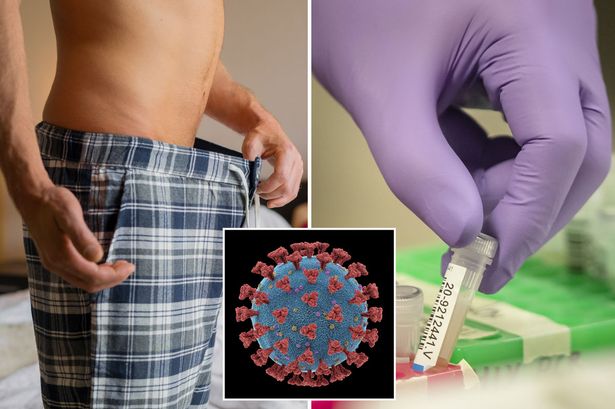Coronavirus could pose a “global threat to male fertility potential”, scientists are warning in troubling new research.
In a review published on Wednesday in the journal Open Biology, researchers outlined the potentially devastating impact the pandemic could have on couples hoping to have children – or for the human race in general.
“The male reproductive system has been hypothesised to be a potential target of SARS-CoV-2 infection, which is supported by some preliminary evidence,” the study’s abstract reads.
“This may pose a global threat to male fertility potential, as men are more prone to SARS-CoV-2 infection than women, especially those of reproductive age.
“Preliminary reports have also indicated the possibility of sexual transmission of SARS-CoV-2. It may cause severe complications in infected couples.”
Researchers have identified four key ways in which Covid can affect male fertility, the first of which is “targeted invasion”.
The research team believes the presence of ACE2 receptors (the coronavirus’ favourite entry point) in the testicles makes male genital cells a potential infection target.
There have also been reports that a case of Covid depletes and damages the body’s Leydig and Sertoli cells, both of which are essential for reproductive health and sperm production.
The second way is by the disease’s inflammation, which could cause permanent damage to reproductive tissue. Inflammation around the heart could also block or decrease blood supply to the penis – meaning erectile dysfunction.
Total testicular inflammation (known as orchitis) is rare but can happen when the immune system goes into overdrive and can cause permanent damage to the reproductive system.
“The most pressing downstream effect that needs to be investigated is whether the inflammatory effects resulting from the viral infection in the testicular tissues and epididymis has the potential to disrupt the process of spermatogenesis and further compromise the viability of sperm cells,” study co-author Shubhadeep Roychoudhury told Inverse.
A third way Covid can hurt male fertility is system-wide inflammation putting hormone levels out of whack.
The fourth factor is stress, which is known to affect sexual health and which has been an issue for many throughout the pandemic.
Covid-19 can also increase the body’s oxidative stress, elevated levels of which can affect the shape, count, viability and “swimming ability” of sperm.
Studies suggest between 25 and 60% of infertile people suffer much higher levels of anxiety and depression than the fertile, and scientists don’t know whether the stress or infertility comes first.
“SARS-CoV-2-infected men should be provided with psychological consultation in time to avoid irrational fear and excessive stress, as these may indirectly affect their reproductive health and well-being,” Prof Roychoudhury said.
His team said their findings are “preliminary in nature” and much more long-term data will be needed in order to establish how much impact coronavirus has on male fertility and whether or not these effects are permanent.
One key piece of evidence will be whether or not fathers who have had Covid-19 are able to conceive another child.



